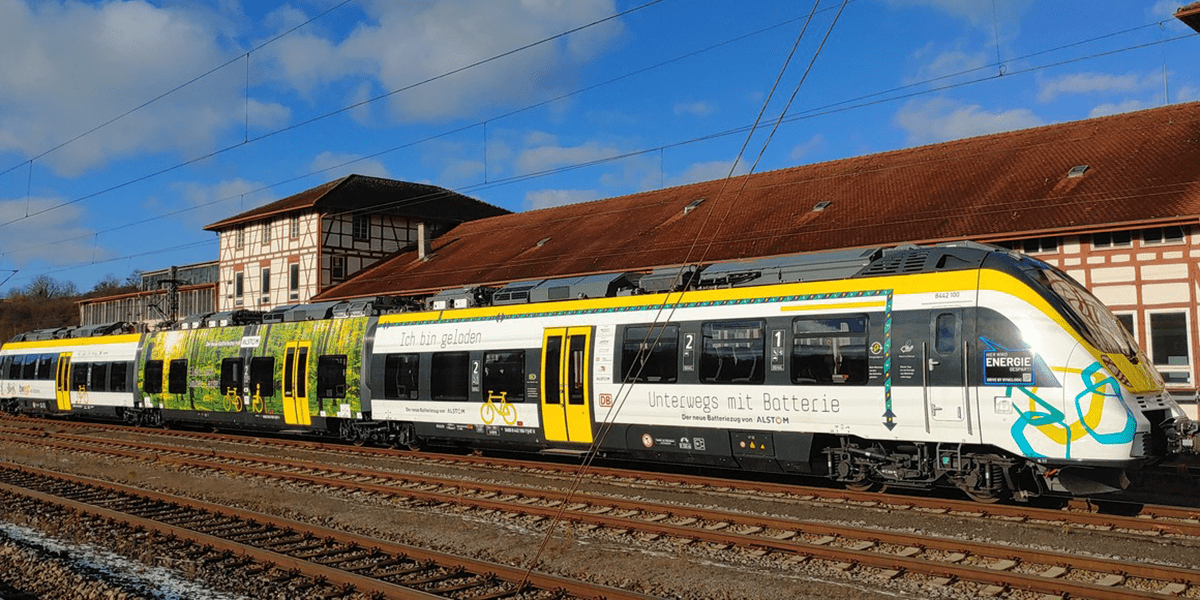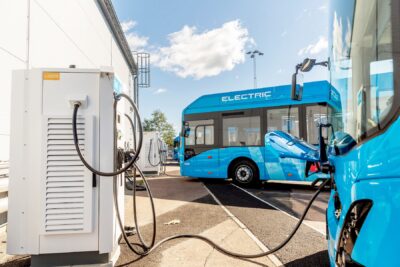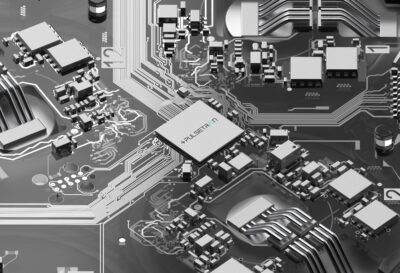Deutsche Bahn puts passengers on Alstom battery-electric trains
French manufacturer Alstom and Deutsche Bahn are now taking passengers onboard Alstom’s first fully approved electric train since this weekend in Baden-Württemberg. Further testing will start in Bavaria on 5 February and run throughout early May on all routes.
The real-world application follows prototype test runs that Alstom and Deutsche Bahn had launched in Saxony in September last year, however independently, as reported.
At the start in Southern Germany this weekend, DB Regio CEO Dr Jörg Sandvoss said the test was to gain practical experience in these future technologies. “The trial operation provides new technical and operational knowledge in handling this innovative climate-friendly drive technology.”
Alstom has been developing the battery-electric train together with the Technical University of Berlin since 2016. In addition to the university and Alstom, partners include DB Regio, the regional transport network for Baden-Württemberg, and the German National Innovation Programme for Hydrogen and Fuel Cell Technology (NOW). The German Federal Ministry of Transport and Digital Infrastructure (BMVI) funds the project with nearly four million euros.
For example, TU Berlin studies had revealed that a large proportion of the lines currently operated with diesel vehicles include non-electrified sections of well under 100 kilometres in Germany, which battery-electric solutions can easily cover. The earliest articles regarding prototypes of the Alstom train specified a range of up to 120 kilometres, also depending on the availability of opportunity charging.
In today’s communications, Alstom added that Germany’s rail network includes 450 lines operated exclusively with diesel trains. Müslüm Yakisan, President of the DACH Region at Alstom stressed, the project aimed to develop efficient and cost-effective technology to “bridge non-electrified gaps” on the German rail network. “The passenger operation testing will enable us to gather valuable data and demonstrate the viability of our solution,” he added.
On weekdays the battery-powered train will run in Baden-Württemberg on the Stuttgart – Horb line and Saturdays and Sundays, on the Pleinfeld – Gunzenhausen line in the Franconian Lake District. Alstom said this arrangement would maximise the train’s mileage while testing a variety of route profiles and battery charging scenarios. For example, while in Baden-Württemberg, charging occurs during the ongoing journey via overhead lines, in Bavaria, charging can only take place at stations, as the route in between is not electrified.
While Alstom’s hydrogen trains are optimised for longer routes, the company’s battery-electric solution is suitable for shorter routes or lines with non-electrified sections previously operated with diesel vehicles.
“We need this future technology on the railways,” said Baden-Württemberg’s Minister of Transport, Winfried Hermann. “On lines where the construction of an overhead line is difficult and therefore too expensive, or can only be realised in the future, battery or hydrogen trains will gradually be used and replace the current diesel operation.”
Bavaria’s transport minister Kerstin Schreyer said, “the Free State is helping to push this important initiative forward,” also through the ‘Bavarian Electric Mobility Strategy Rail’ launched in 2018. “I hope that this project will provide important insight, because the Bavarian railway network is virtually predestined for the use of such battery trains and we want to gradually replace our diesel trains with emission-free drives and become climate-neutral in Bavaria by 2040 at the latest,” she added.
In future, Alstom will apply the ‘Battery Electric Multiple Unit’ (BEMU) technology to the Alstom Coradia platform.





0 Comments